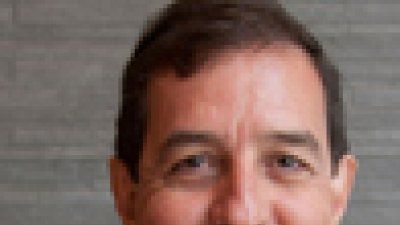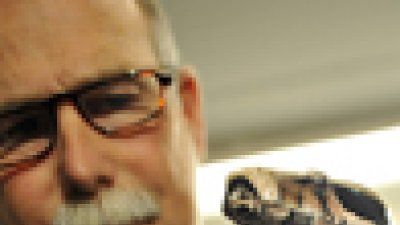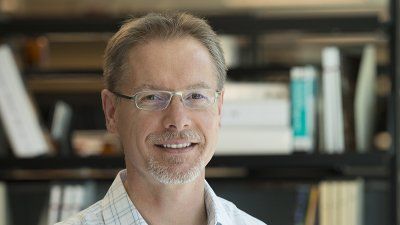University of California San Francisco
Give to UCSF-
-
Study: Tanning Beds Cause 170K Skin Cancer Cases Yearly
-
Indoor Tanning Tied to 170,000 Skin Cancers Annually
-
Tracking and Treating Tuberculosis in Developing Countries
<p>A patient in rural Uganda is diagnosed with tuberculosis but never begins treatment. In Vietnam, someone with infectious TB might never be diagnosed because the health center is too far away. Adithya Cattamanchi, MD, is working to address challenges in Uganda and Vietnam by applying techniques of <a href="http://accelerate.ucsf.edu/training/ids">implementation </a><a href="http://accelerate.ucsf.edu/training/ids">science</a>.</p>

-
Starting Antiretroviral Therapy Improves HIV-Infected Africans' Nutrition
Starting HIV-infected patients on antiretroviral therapy reduces food insecurity and improves physical health, thereby contributing to the disruption of a lethal syndemic, UCSF and Massachusetts General Hospital researchers have found in a study focused on sub-Saharan Africa.

-
Helping Women Make Informed Decisions About Reproductive Health
<p>Although it’s proven that contraception prevents pregnancy, it’s also clear that many women who don’t want to get pregnant don’t use or don’t have access to contraception. Christine Dehlendorf, MD, MAS, a family physician based at San Francisco General Hospital and Trauma Center, used implementation science to help women navigate this issue.</p>

-
Tanning Beds Linked to Non-Melanoma Skin Cancer
Indoor tanning beds can cause non-melanoma skin cancer — and the risk is greater the earlier one starts tanning, according to a new analysis led by UCSF.

-
Tanning Beds' Toll: At Least 170,000 Skin Cancers a Year
-
Smoking in Movies Increases in 2011, Reverses Five Years of Progress
Top box office films last year showed more onscreen smoking than the prior year, reversing five years of steady progress in reducing tobacco imagery in movies, according to a new UCSF study.

-
Bodies Donated to Science Offer Invaluable Hands-on Lessons in Anatomy Lab
<p>Since the earliest days of medicine, the complex study of human anatomy has been an integral part of health science training and research. For more than 60 years, the UCSF Willed Body Program has overseen the donation of bodies for medical education and research.</p>

-
Secondhand Smoke Takes Large Physical and Economic Toll
Secondhand smoke is accountable for 42,000 deaths annually to nonsmokers in the United States, including nearly 900 infants, according to a new UCSF study.

-
Global Health to Launch Hub at UCSF With $20 Million Gift
UCSF has received a $20 million gift from philanthropist Chuck Feeney to build a new hub for Global Health Sciences at the UCSF Mission Bay campus.

-
Tracking Glaucoma among Asian Ethnicities
-
Sinusitis Linked to Microbial Diversity
A common bacteria ever-present on the human skin and previously considered harmless, may, in fact, be the culprit behind chronic sinusitis, a painful, recurring swelling of the sinuses that strikes more than one in ten Americans each year, according to a study by scientists at UCSF.

-
Apnea Steals Sleep from the Restless
-
Obesity Weighing on America - Latin America, That Is
-
Malaria Nearly Eliminated in Sri Lanka Despite Decades of Conflict
Despite nearly three decades of conflict, Sri Lanka has succeeded in reducing malaria cases by 99.9 percent since 1999 and is on track to eliminate the disease entirely by 2014.

-
Living with Retinitis Pigmentosa
-
Sleepless Nights May Put The Aging Brain At Risk Of Dementia
-
Sleep Problems May Contribute to Cognitive Decline
-
Great Manager Profile: Doug Eckman
<p><span>Doug Eckman works at the intersection of dual bureaucracies. As director of operations for UCSF School of Medicine, Dean’s Office at San Francisco General Hospital and Trauma Center (SFGH), Eckman must navigate both the university and the city’s Department of Public Health. Despite the complexity and perhaps because of it, Eckman loves his work.</span></p>

-
A Sleeping Timebomb
-
Research Offers New Hope for HIV/AIDS Patients with Cancer
<p>A proposed new treatment to help HIV/AIDS patients suffering from Kaposi’s sarcoma, the most common form of cancer in people with HIV, is now one step closer to becoming a reality thanks to a program that supports promising early-stage research.</p>

-
UCSF's Resource Allocation Program Seeks Applications for Fall Cycle
<p>UCSF's Resource Allocation Program (RAP), which incorporates a single online application for 30 different research grants, is now requesting applications for the Fall 2012 Cycle.</p>

-
Mysterious Snake Disease Decoded
A novel virus has been identified as the possible cause of a common but mysterious disease that kills a significant number of pet snakes all over the world, thanks to research led by scientists at the University of California, San Francisco (UCSF)—and three snakes named Juliet, Balthazar and Larry.

-
Sleeping Less May Dampen Vaccine Response
-
Epilepsy Drug Could Help with Alzheimer's-Related Memory Loss
Scientists at the UCSF-affiliated Gladstone Institutes have discovered that an FDA-approved anti-epileptic drug reverses memory loss and alleviates other Alzheimer’s-related impairments in an animal model of the disease.

-
Students Experience Cutting-Edge Research
The UCSF Science & Health Education Partnership's (SEP) High School Summer Internship program prepares students for college through hands-on laboratory experience alongside a mentor.

-
Having Holiday Jabs? Why It's Essential to Get a Good Night's Sleep Afterwards
-
Why Lack of Sleep Weakens Vaccine Effectiveness